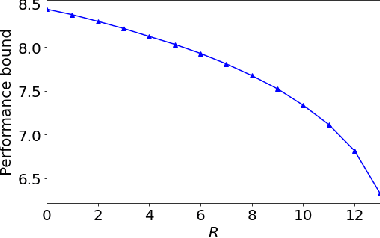Near-Optimal Data Source Selection for Bayesian Learning
Paper and Code
Nov 21, 2020

We study a fundamental problem in Bayesian learning, where the goal is to select a set of data sources with minimum cost while achieving a certain learning performance based on the data streams provided by the selected data sources. First, we show that the data source selection problem for Bayesian learning is NP-hard. We then show that the data source selection problem can be transformed into an instance of the submodular set covering problem studied in the literature, and provide a standard greedy algorithm to solve the data source selection problem with provable performance guarantees. Next, we propose a fast greedy algorithm that improves the running times of the standard greedy algorithm, while achieving performance guarantees that are comparable to those of the standard greedy algorithm. We provide insights into the performance guarantees of the greedy algorithms by analyzing special classes of the problem. Finally, we validate the theoretical results using numerical examples, and show that the greedy algorithms work well in practice.
 Add to Chrome
Add to Chrome Add to Firefox
Add to Firefox Add to Edge
Add to Edge